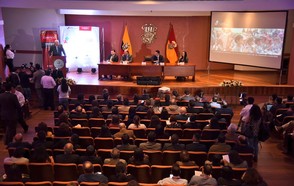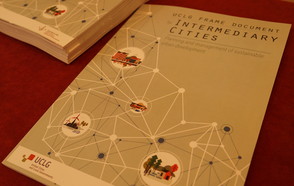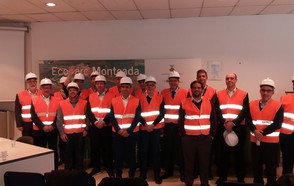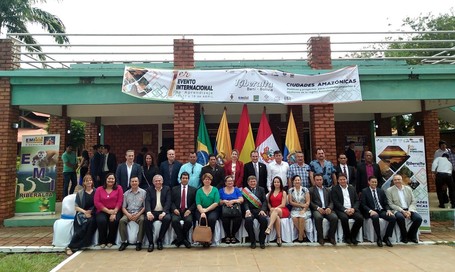
Under the leadership of the city of Riberalta and the Latin American Coordination of Local Authorities for the unity in the diversity (FLACMA) , and co-organized by the Vice-Ministry of Autonomies of Bolivia, the National Association of Municipalities of Bolivia (AMB), the International Labour Organization (ILO) and United Cities and Local Governments (UCLG), a peer learning exchange on Policies and projects for small and intermediary cities in the amazon region took place from 16-18 April 2018 in Riberalta, Bolivia.
The exchange brought together for the first time 40 political leaders and 70 participants from cities, academy and associations of the Amazon Region of Brazil, Bolivia, Colombia, Ecuador and Peru, who shared their experiences and visions around challenges and opportunities. The event emphasized the importance of green economies as lever of change, that enhances the creation of sustainable local economies in line with the conservation of the environment. This, in turn, fosters social cohesion and equality and serves to increase productivity levels and community actions, and improves the quality of life for all citizens.
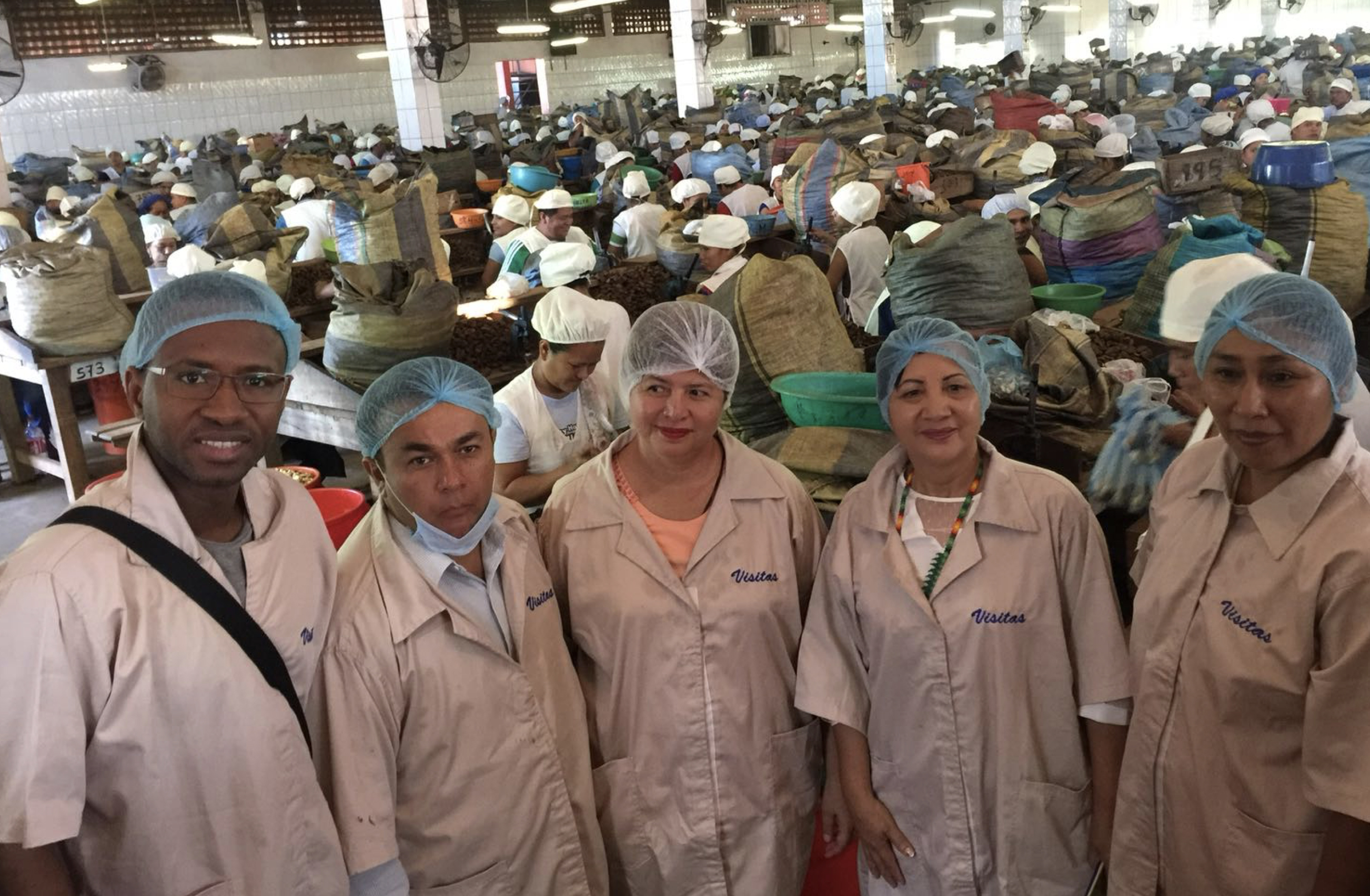 As part of the learning experience, the two peer visits shed light on the concepts of green employment. The sustainable and ecological production of the "Castaña", "Paranut", also called Brazil nut, the fruit of an Amzonian rainforest tree that is collected by indigenous and rural populations and later prepared in local industries that were visited, finally to be exported to global markets. The production chain reaches an export value of up to 100 million US dollars per year and offers employment to 12,000 families.
As part of the learning experience, the two peer visits shed light on the concepts of green employment. The sustainable and ecological production of the "Castaña", "Paranut", also called Brazil nut, the fruit of an Amzonian rainforest tree that is collected by indigenous and rural populations and later prepared in local industries that were visited, finally to be exported to global markets. The production chain reaches an export value of up to 100 million US dollars per year and offers employment to 12,000 families.
Ecotourism is an important source of income for the Amazonian population. A peer visit to a natural lake with a protected rainforest led to engaging discussions and ideas for cooperation and marketing, in particular by the mayors of Peruvian and Ecuadorian cities that are considered eco-touristic spots and shared many practices. In that same line, the example presented by the Mayor of Cazorla from Famsi confirmed the long-term wins of natural conservation in the diversification of economic activity and natural services.
Another eye-opener was the common challenges of local governments- finding themselves disadvantaged in terms of connection, urban development expenses, state attention and competitiveness, they provide basic and in particular social services that stabilize areas of former conflict, such as in Caqueta or Peru; as well as environmental policies to mitigate the exploration of global treasure- in particular narco-agriculture, mining, and pastoral farming.
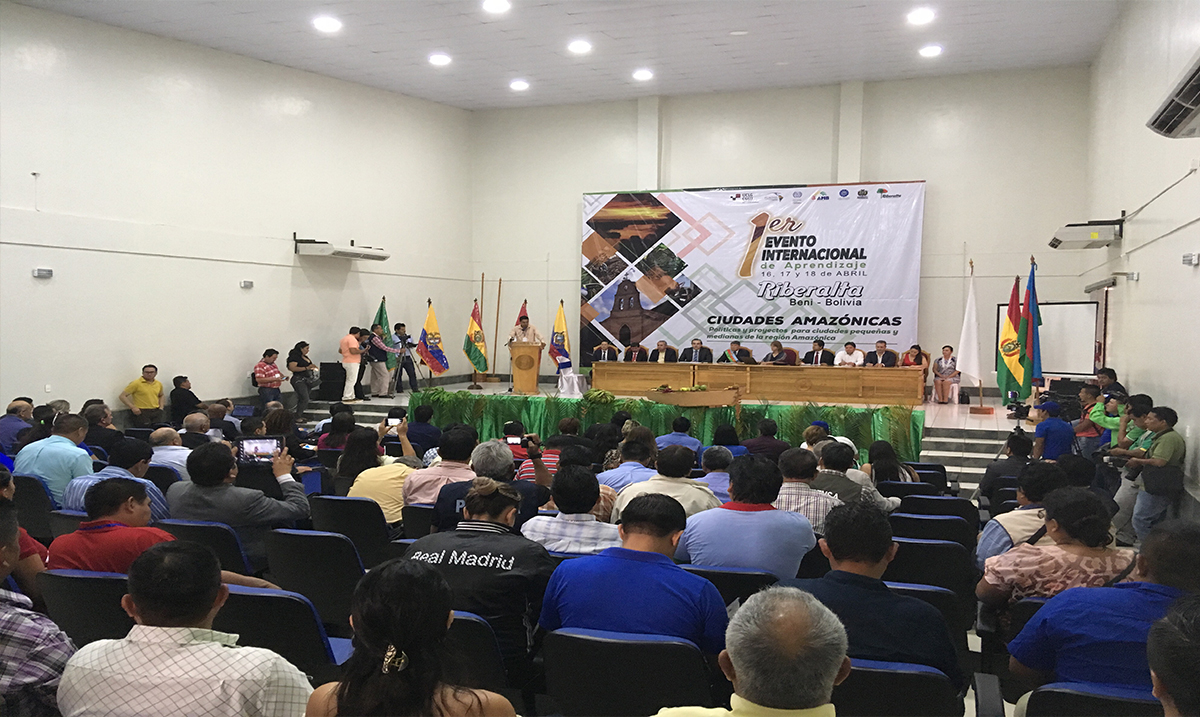 The Sustainable Development Goals (SDGs), the Paris Agreement and the New Urban Agenda present an opportunity for local and regional governments to initiate a real universal transformation. Under the premise "leave no one behind" all local and regional leaders present in Riberalta, agreed on supporting the localization of the SDGs, in particular: SDG 5 (gender equality), SDG 8 (decent work), SDG 11 (cities and sustainable communities), SDG 13 (climate action) and SDG 15 (life on land).
The Sustainable Development Goals (SDGs), the Paris Agreement and the New Urban Agenda present an opportunity for local and regional governments to initiate a real universal transformation. Under the premise "leave no one behind" all local and regional leaders present in Riberalta, agreed on supporting the localization of the SDGs, in particular: SDG 5 (gender equality), SDG 8 (decent work), SDG 11 (cities and sustainable communities), SDG 13 (climate action) and SDG 15 (life on land).
All leaders present agreed on the key role of local and regional governments in the region, as co-responsible for the protection of the Amazon as an area of importance to the sustainability of the planet. Participants emphasized in the role of local and regional governments as key actors in the management of the territories and drivers of public policies that respond to the need to look for sustainable alternatives to the use of the resources provided by the Amazon territory. Futhermore, they highlighted the importance of working as a network, in a comprehensive way based on a joint vision of the Amazon region, allowing the territorial articulation and governance to address common challenges.
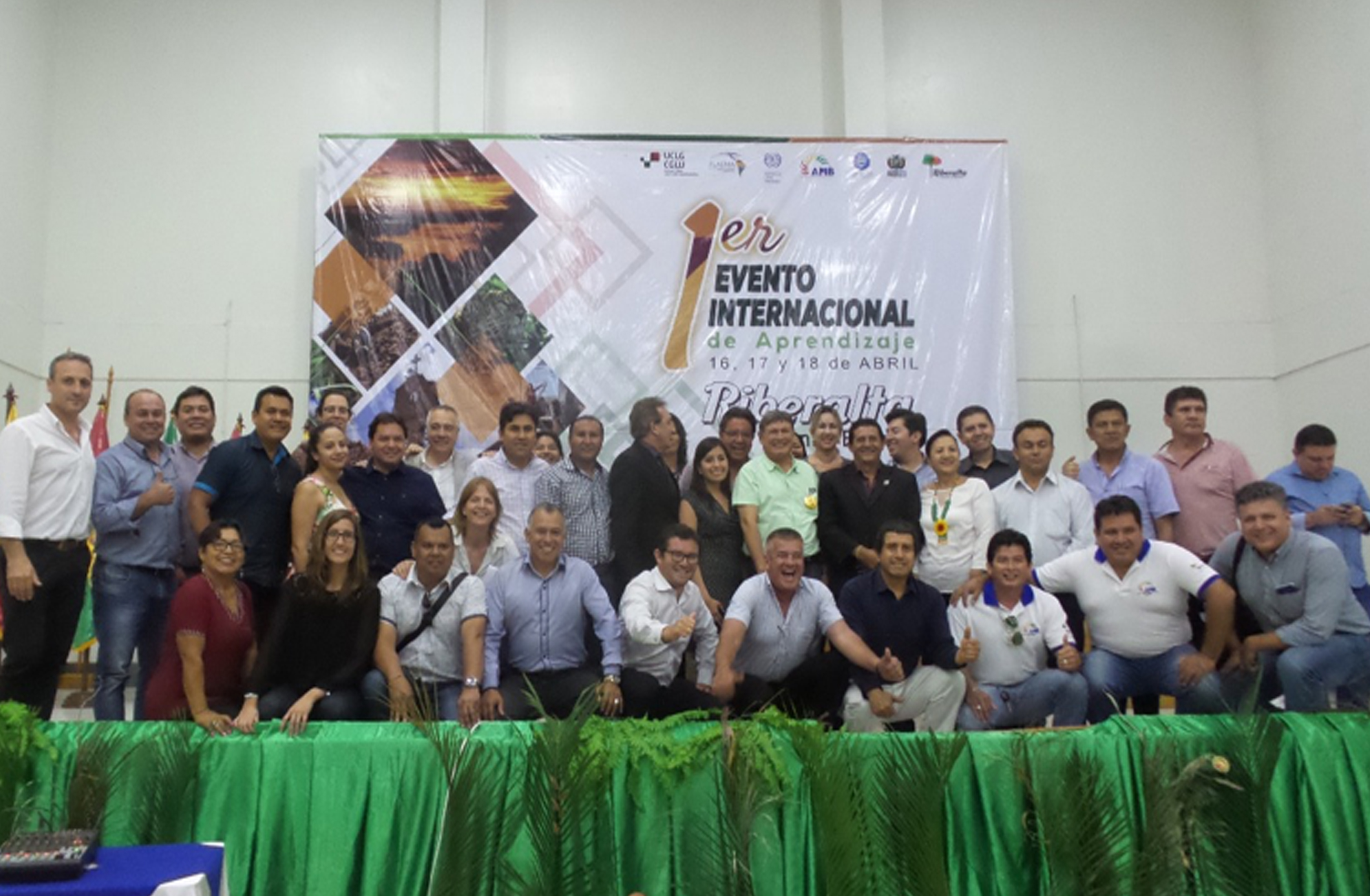 The debates that took place during the event identified of key component that will enable local and regional leaders from the Amazon region to play a more active role in the process towards sustainable development. A multi-level governance structure to work towards the construction of a shared future, was highlighted as essential. The need to generate clear and accessible funding opportunities for cities in the region was also central to the debates. Local leaders called for the recognition of the role of municipalities of the Amazon as actors working towards sustainable territorial management through strategic planning, land use planning, diversification of the economy, decent and green work, etc.
The debates that took place during the event identified of key component that will enable local and regional leaders from the Amazon region to play a more active role in the process towards sustainable development. A multi-level governance structure to work towards the construction of a shared future, was highlighted as essential. The need to generate clear and accessible funding opportunities for cities in the region was also central to the debates. Local leaders called for the recognition of the role of municipalities of the Amazon as actors working towards sustainable territorial management through strategic planning, land use planning, diversification of the economy, decent and green work, etc.
The event concluded with the “Riberalta Declaration” a document that will serve as an overview of key challenges and opportunities identified by all participants, as well as a road map towards the coordination of efforts that meet the needs of cities from the Amazon region with FLACMA, to ensure its integrity. Local and regional governments need recognition as key actors to achieve Sustainable Development objectives at all levels, especially at the levels closest to citizens.
- Read the "Riberalta Declaration"
- Visit the dedicated website (Spanish)











